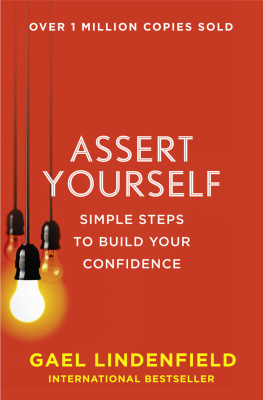Gael Lindenfield - How to Feel Good in Difficult Times
Here you can read online Gael Lindenfield - How to Feel Good in Difficult Times full text of the book (entire story) in english for free. Download pdf and epub, get meaning, cover and reviews about this ebook. year: 2020, publisher: Trigger Publishing, genre: Home and family. Description of the work, (preface) as well as reviews are available. Best literature library LitArk.com created for fans of good reading and offers a wide selection of genres:
Romance novel
Science fiction
Adventure
Detective
Science
History
Home and family
Prose
Art
Politics
Computer
Non-fiction
Religion
Business
Children
Humor
Choose a favorite category and find really read worthwhile books. Enjoy immersion in the world of imagination, feel the emotions of the characters or learn something new for yourself, make an fascinating discovery.
- Book:How to Feel Good in Difficult Times
- Author:
- Publisher:Trigger Publishing
- Genre:
- Year:2020
- Rating:4 / 5
- Favourites:Add to favourites
- Your mark:
- 80
- 1
- 2
- 3
- 4
- 5
How to Feel Good in Difficult Times: summary, description and annotation
We offer to read an annotation, description, summary or preface (depends on what the author of the book "How to Feel Good in Difficult Times" wrote himself). If you haven't found the necessary information about the book — write in the comments, we will try to find it.
How to Feel Good in Difficult Times — read online for free the complete book (whole text) full work
Below is the text of the book, divided by pages. System saving the place of the last page read, allows you to conveniently read the book "How to Feel Good in Difficult Times" online for free, without having to search again every time where you left off. Put a bookmark, and you can go to the page where you finished reading at any time.
Font size:
Interval:
Bookmark:


First published in Great Britain 2020 by Trigger
Trigger is a trading style of Shaw Callaghan Ltd & Shaw Callaghan 23 USA, INC.
The Foundation Centre
Navigation House, 48 Millgate, Newark
Nottinghamshire NG24 4TS UK
www.triggerpublishing.com
Text Copyright 2020 Gael Lindenfield
All rights reserved. No part of this publication may be reproduced, stored in a retrieval system, or transmitted in any form or by any means, electronic, mechanical, photocopying, recording or otherwise, without prior permission in writing from the publisher
British Library Cataloguing in Publication Data
A CIP catalogue record for this book is available upon request from the British Library
ISBN: 9781789561777
This book is also available in the following e-Book formats:
ePUB: 9781789562002
Gael Lindenfield has asserted her right under the Copyright,
Design and Patents Act 1988 to be identified as the author of this work
Cover design by Georgie Hewitt
Typeset by Georgie Hewitt
Printed and bound in Great Britain by CPI Group (UK) Ltd, Croydon CRO 4YY
Paper from responsible sources
My ability to deal well with setbacks is a privilege that I will never take for granted. Life can feel literally hell and impossibly daunting without it. I have been lucky in that I had a chance to learn how to deal with these kinds of debilitating emotional reactions to setbacks and have had many opportunities to put them into practice in real life.
The crucial key to making the best of difficult times is, I believe, to look for the positive in change, however unwelcome it may seem. But I also know that this is much easier said than done, and that certain qualities and skills are needed to make it possible. Confidence, emotional resilience and motivation are required in order to be able to move on positively, but, by their very nature, difficult times will knock all three of these out of the best of us. I have written many self-help programmes designed to develop and strengthen them, but when a setback hits, most people have neither the time nor the energy to embark upon demanding plans for personal development.
Neuroscientists have warned that the human brain cannot evolve and adapt quickly enough to cope well with the pace of change that many of us are encountering today. Perhaps this is one of the main reasons why depression and anxiety disorders are on the increase. Faced with this and the ever more uncertain state of the world, I wanted to put together a book that offered a collection of tips and tools aimed specifically at addressing the problem of low morale during tough times and this is the result.
Some of the tips are tried-and-tested favourite strategies which I have modified, others are new ideas. While the majority can be learnt quickly and applied immediately, some are more involved, requiring a little more time to read and understand before they can be put into effective practice. Having said that, once you have read or worked on these longer tips, the next time you are in a challenging real-life situation, you will be able to apply what you have learnt very quickly.
None of us ever knows what life has in store for us or for our family and friends, but in order to emerge from setbacks stronger and more resilient, you need to keep your morale reserves continually topped up, using these tips even when your most testing time is over. This will give you a boost should you meet more difficult times in the future, as well as equipping you to help others through theirs.
I hope you find this collection of tips helpful and inspiring.
When we are going through times of crisis our natural response is often to batten down the hatches and cocoon ourselves in our safe space which, more often than not, can be found at home. Far from wallowing or hiding from our problems, this desire to hunker down and take stock is only natural, and taking time to come to terms with what has happened and working out a strategy to accept and move past the feelings that it has thrown up is an important and healthy response. One of the knock-on effects of ignoring emotional hurt is a loss of self-confidence and, consequently, morale. Buried feelings, especially deep ones, rarely just dissolve away. They have a tendency to leak or burst out and surprise you at inconvenient moments; or they may trigger physical issues, such as a loss of energy, headaches or, more seriously, problems with your heart or immune system.
This is why it is essential to deal with the emotional impact of whatever has happened to you as quickly as you can. If you have been made redundant, are facing divorce or have lost a parent, for example, you will probably need initially all the energy, confidence and inner calm you can muster to cope with the situation. And for most of us, we feel safest and calmest at home. In this chapter, I will show you how to create a safe and nurturing space in your home that will allow you to quickly take stock of the situation, breed positivity and help you gain perspective, strength and ultimately acceptance.
The tips in this section are designed to guide you through the emotional-healing process and, importantly, to help you find the time and space to put it into action.

There is nothing like staying at home for real comfort.

Jane Austen, novelist
Setting aside a day occasionally for cosseting yourself with pure self-indulgence will give both your health and self-esteem a boost.
Nowadays, it is a common belief that this is best achieved by booking a day at a luxury health spa. As wonderful as these can be, even if you can afford this kind of treat, when you are going through a particularly difficult time, it can be counterproductive. Spas are great venues, perhaps for celebrations and treats, but not the best places for emotional recovery, especially if you have financial worries. A quiet duvet day in the comfort of your own home is usually much more beneficial.
The longer your duvet day is, the better will be its effects, but in practical terms, you may only be able to spare a few hours. If this is the case, it is even more important to prepare for it carefully so you can make the very most of it.
Here are some suggestions to include on your to-do list:
Make arrangements for your home to be emptied of everyone. This is a day just for you, regardless of how close you are to others. The pleasure and healing you get from togetherness is wonderful, but different. A day of self-indulgence in solitude offers other possibilities. It gives you the freedom to be exactly who you are; think about whatever comes into your mind, however stupid, illogical or disgraceful those thoughts may seem, and, of course, to do whatever you want to do, even if that is nothing.
If you have to ask for help to make your solitude possible, remember that you can return favours later; giving back to someone else in their hour of need is so pleasurable that you will receive a bonus mood-booster.
Next pageFont size:
Interval:
Bookmark:
Similar books «How to Feel Good in Difficult Times»
Look at similar books to How to Feel Good in Difficult Times. We have selected literature similar in name and meaning in the hope of providing readers with more options to find new, interesting, not yet read works.
Discussion, reviews of the book How to Feel Good in Difficult Times and just readers' own opinions. Leave your comments, write what you think about the work, its meaning or the main characters. Specify what exactly you liked and what you didn't like, and why you think so.

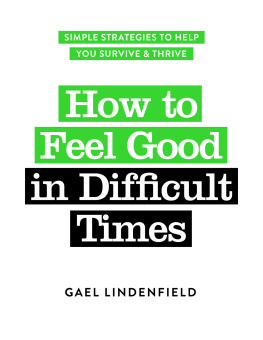

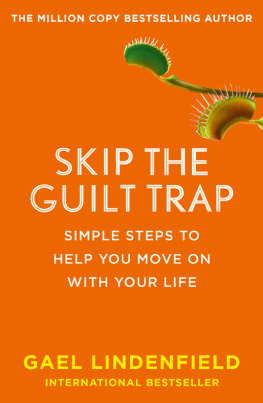
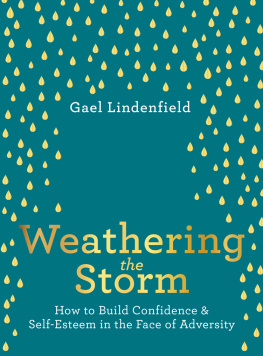
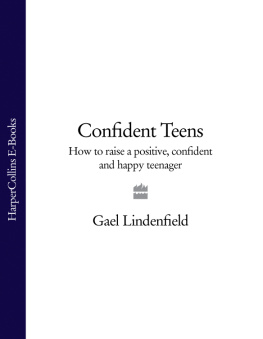
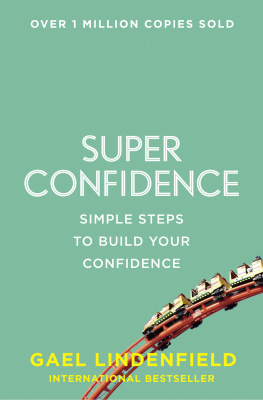


![Lindenfield - Emotional confidence : [simple steps to build your confidence]](/uploads/posts/book/119303/thumbs/lindenfield-emotional-confidence-simple-steps.jpg)
